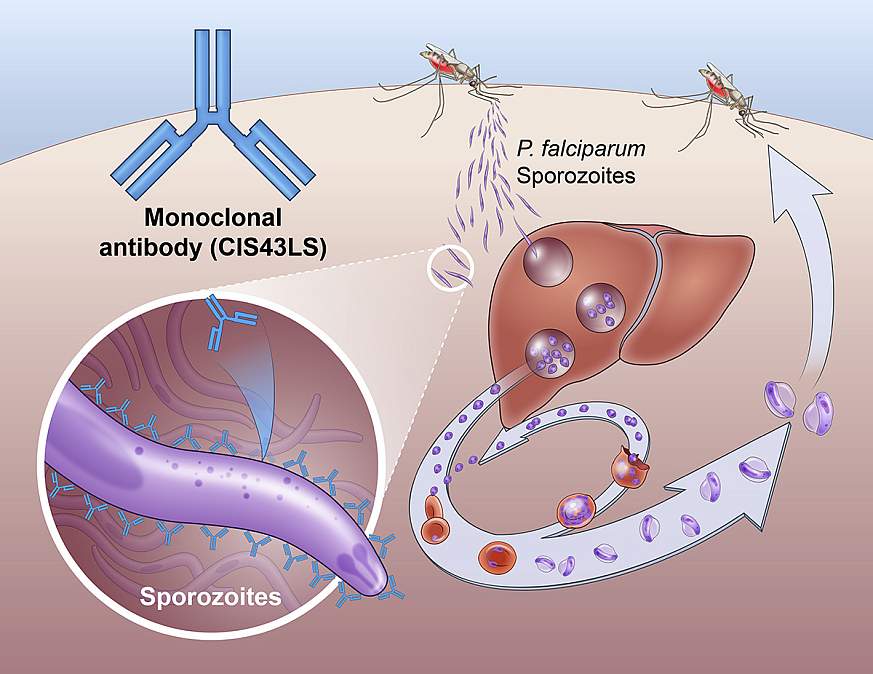
Molecular test confirms antimalarial antibody’s efficacy
On Jun. 18, 2025, researchers at the University of Washington (UW) School of Medicine announced that a highly sensitive molecular lab test recently confirmed that an experimental monoclonal antibody targeting malaria can prevent malaria parasite infection. The researchers hope the results from the study will lead to wider adoption of the test in global malaria-control efforts.
The study evaluated an experimental antibody that targets Plasmodium falciparum, the parasite that causes the deadliest form of malaria. Plasmodium is spread by mosquitoes that pick up the parasite when they bite an infected person and then transmit it when they bite someone else.
Each year, P. falciparum causes 200 million malaria cases and 600,000 deaths, mostly among young children in Africa.
The antibody, called CIS43LS, was created at the National Institutes of Health (NIH). It binds to a protein found on the surface of the parasite. This neutralizes the parasite when it enters the body, before it can establish an infection.
The molecular diagnostic test was used to confirm the results of a randomized, double-blind trial conducted in 2021 in Mali, West Africa. In the study, 330 adult participants were first given antimalarial medication to ensure they were free of malaria. They then received either the antibody or a placebo. The antibody was given in one of two doses, 40 mg per kilogram or 10 mg per kilogram.
The researchers wanted to see if the study’s results held up when participants’ blood samples were tested with a more sensitive molecular test that can detect minuscule amounts of parasite RNA in the blood. The molecular lab test, which is about 2,000 times more sensitive than the thick blood smear, makes it possible to detect parasites when there are as few as 20 per milliliter.
With this approach, the researchers were able to confirm that infusions of the CIS43LS antibody were 87.4% effective with the larger dose and 77% effective with the lower dose. The findings indicate that a single dose of CIS43LS might not only protect people from symptoms of malaria, but also completely prevent infection as well as transmission from person to person. The research results were reported in Nature Medicine.
Tags:
Source: University of Washington School of Medicine
Credit:
